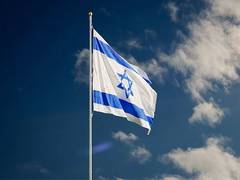Baloch National Movement condemns Pakistan’s fencing of Gwadar city
Quetta [Pakistan], May 1 (ANI): In the wake of the Pakistan government’s decision to fence the Gwadar city of Balochistan, the Baloch National Movement has condemned the act and said that the action is similar to the tactics in the colonized regions.
In the statement, BNM stated “This tactic mirrors the historical pattern seen in colonized regions, where the colonizers fear local inhabitants’ rightful claim to land, coastlines, and resources. Discontent with imposed authority and decisions prevails among the local populace”.
The organisation claimed in its statement that this fencing has been an act of marginalizing and displacing residents of Balochistan and the Baloch community and introducing special entry cards, fencing is an attack on the freedom of the Baloch community. Calling upon the Baloch people, BNM said that people must reject these impositions and unite in organized resistance against such encroachments on their rights.
Meanwhile, the BNM also organized a rally in Busan city of South Korea, raising awareness over the atrocities inflicted by the Pakistani administration on the Baloch community. BNM members not only distributed pamphlets but Speakers such as Hafsa Baloch, Sameer Baloch, Agha Faiz, and Bakhtawar Baloch addressed the gathered participants.
The forcefully occupied province of Balochistan frequently faces several other problems at the hands of the Pakistani administration. As of now the most crucial problem for the Baloch community is the issue of enforced disappearance, resulting in people being kidnapped allegedly by the defence and intelligence agencies.
Prominent Baloch rights activist Mahrang Baloch recently raised the same issue while participating in the Asma Jahangir conference in Lahore. While raising the matter of enforced disappearances Mahrang Baloch stated “The cases of enforced disappearances have been a curse for the people of Balochistan. It is not a mere crime against humanity, but it is a tool utilized by the state to suppress the Baloch people and to loot their resources. For more than 20 years Baloch women in the form of mothers, sisters, daughters, and wives have been struggling for the safe return of their loved ones. Women are often given corporal punishments like and are harassed sexually and physically.”
“Several places in Balochistan Awaran, Bolan, and Kohlu have prisons for women who participate in protests against the Pakistani Administration demanding the safe return of their loved ones. Women in these prisons are often exposed to severe punishments. There are also cases where women are kidnapped for merely pressuring these protestors. They are often given to soldier and death squad camps where they are sexually and physically abused. We have also come across cases where young girls are married to death squad members forcibly,” she pointed out.
Asma Jahangir was a prominent human rights lawyer from Pakistan and was also a UN Special Rapporteur on the situation of human rights in the Islamic Republic of Iran during her life she also received the prestigious UN Human Rights Prize. The prize was awarded posthumously to Jahangir who died earlier in 2018 in her home country of Pakistan at the age of 66 a report by United Nations Human Rights Council stated.








